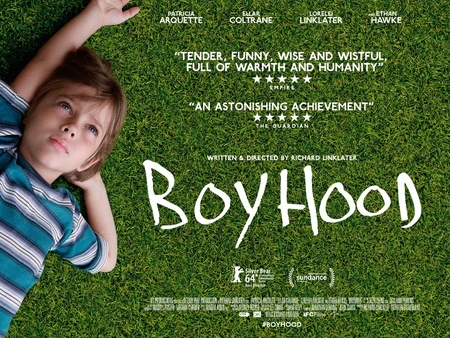I have oft heard the argument or sensed the belief that faith is a crutch for the feeble-minded. Hollywood’s response to anything God-involved is to laugh. I recently saw the critically-acclaimed movie Boyhood. The film was groundbreaking because it was a fictional depiction of a boy’s maturation filmed over a twelve year period with the same cast throughout. The movie feels more realistic than most movies because it is! We get to see the same actors age over time without the help of makeup. One part of the movie has Ethan Hawke’s daughter in the movie fretfully asking “you’re not one of those God people now, are you?” Another part shows Ethan Hawke’s son receiving a Bible from his step-grandparents as a birthday gift. The theater burst out in riotous laughter. Why?
I understand when the people are put off by Christians instantly condemning them to hell. That’s not the message that makes people want to voraciously eat up Bible verses.
 |
| Real alluring, right? |
I mention Timothy Keller too often, but to quote him, “When I am prepared for a sermon I quote a wide variety of sources. When I am not prepared, I quote C.S. Lewis.” I laughed when I heard him say this because I feel like Dr. Keller is to me what C.S. Lewis is to him. He makes so much sense sometimes, I cannot help but reference him.
Matt and I listened to a message by Dr. Keller called “Reasons of Faith, Faith as Understanding.”
Again, listen to this if you want it to be truly moved and possibly get a brain cramp. My synopsis of Keller sermons can only encapsulate so much. I say there is a danger of brain cramp because his messages are not for the feeble-minded. “Faith as Understanding” argues that it takes a lack of knowledge to so easily disbelieve. The harder you seek to understand the Bible the more difficult it becomes to disbelieve. Part of having faith is having the foundational knowledge found in the Bible. If you’re like me, you need further explanation of some passages, so you delve into supplemental reading and bright minds like Keller’s to clarify. All of this is research. I see my quest to understand and live the Gospel as an intensely intellectual process. I’m not saying I’m the sharpest tool in the shed, but I do not easily believe. I require a thorough understanding of anything before taking the plunge of commitment. It took me four years to feel for certain that Matt was the man I should marry. I am much better at observing than making decisions, but my observations are crucial in order for me to come to a conclusion.
If you are floundering around with no knowledge of any faith, it is very easy to be critical based on your first impressions. Maybe the only so-called Christian you’ve encountered was shouting from a bullhorn “Sex is bad!” and “You are all going to burn” in the middle of campus. That’s enough to put Christianity out of a lot of minds forever. But just as we want a thorough understanding of the person we are going to spend our lives with, we should seek a thorough understanding of the being that instilled a conscience in our heads and the inexplicable ability to love in our hearts.
Keller jokes about constantly referencing C.S. Lewis. We all have those sources that pop into our minds and seem relevant in so many circumstances. Maybe it’s a Seinfeld episode or quotes from Zoolander that pop into your head subconsciously. Usually those subconscious interjections come from something we’re obsessed with, or were at one time in life. We’ve completely committed it to memory. That’s how Keller is with Lewis, but he said he wished the red letters of the Bible overwhelmed his mental conversations more often than words of the great C.S. Lewis.
An Apologetics Press article by Dr. Bert Thompson details the codependent relationship of faith and knowledge. The following excerpts stood our as particularly applicable:
Genuine faith derives from facts presented to the mind and from which proper and correct deductions are then drawn (John 20:30,31)…. There is no such thing as “blind” faith. Faith itself is possible only when reason recognizes the trustworthiness of the testimony which produces it (1994, 125[11]:2).
“Grow in the grace and knowledge of our Lord Jesus Christ” 2 Peter 3:18



